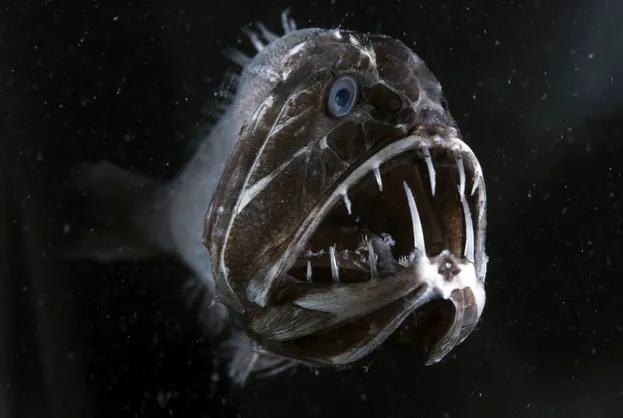Blue Planet II narrator Sir David Attenborough and executive producer James Honeyborne have defended the use of filming in controlled conditions, arguing that some animal behaviours can only be captured in this way.
“We make films that are totally true to nature and we’re honest and open about the techniques we use to do that,” Honeybourne told the Guardian.
“If you’re filming something that’s microscopic, you have to put added light on it – that’s just the simple laws of physics.”

Fangtooth fish © Espec Rekdal / BBC NHU
The Blue Planet II team worked with scientists to recreate wild conditions. For example, the fangtooth fish (above) was filmed in special chamber aboard a ship.
“To say that we are distorting natural history would be absurd,” says Attenborough.
“We would like to think that the natural world is better understood and better respected as a consequence of what we do. You can’t respect it unless you understand it.”
Blue Planet II is a seven-part series that airs on 29 October on BBC One.
Sir David Attenborough is the narrator of Blue Planet II © BBC NHU
